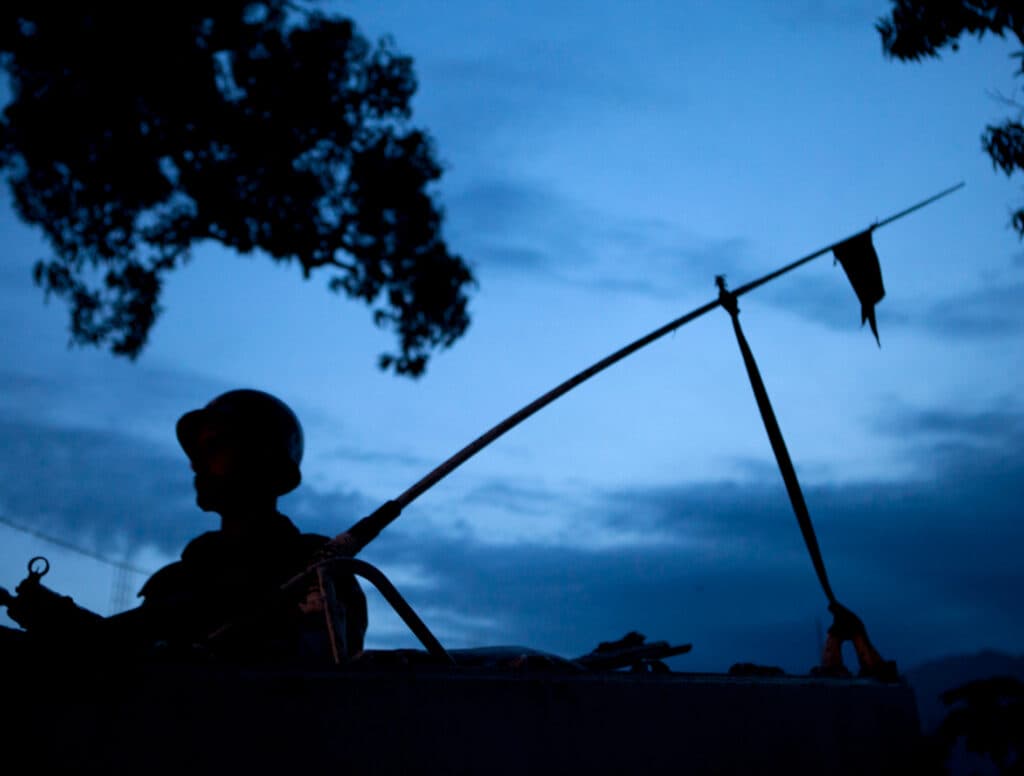
For whose actions is the state responsible?
The responsibility of states for acts committed by persons or groups acting on its behalf.
A state may be held responsible for acts committed by individuals, for example its soldiers. However, a violation must be attributable to that state. A key requirement is that it controls the person or group who committed the violation.
Not all acts of individuals engage the responsibility of a state. In order for a state to be held responsible, a violation must be attributable (connected) to that state. In other words, the state must be answerable for the person who committed the violation. If there is no such connection, only the person can be held accountable under the principle of individual criminal responsibility.
Acts of state organs
The acts of state organs - organisations or institutions belonging to the state - are clearly attributable to the state no matter whether the organ exercises legislative, executive, judicial, or any other functions. Examples are the parliament, police, and courts.
The acts of the armed forces, and persons who accompany them, are directly linked to the state. Therefore, the state is responsible for their actions regardless if they operate in the home country or abroad.
Acts of persons with some government authority
Likewise, the acts of persons or entities exercising elements of governmental authority are attributable to the state.
This rule also covers, for example, private corporations which are authorised by the state to exercise certain public functions in prisons, checkpoints or other institutions.
In general, a violation is only attributable to the state if the organ or person, from the categories above, act in his or her formal public capacity. However, attribution can be made even if the person or organ exceeds its authority or does not follow instructions.
According to international humanitarian law (IHL), a party to the conflict “shall be responsible for all acts by persons forming part of its armed forces” (article 3 Hague Regulation IV, article 91 IAP). This clearly indicates that the state is responsible also for private actions of armed forces.
In other words, during war time, members of the armed forces are always on duty and can never act in private capacity. For example, sexual crimes of a certain gravity committed by a soldier during leave will therefore, result in a violation of his or her state's international obligations (in parallel to individual criminal responsibility).
The state retroactively adopts the act
A violation which is not attributable to a state shall nevertheless be considered an act of that state if the state acknowledges and adopts the conduct in question as its own.
An example of such retrospective acknowledgement would be if the state publicly praises and gives approval to a violation of IHL which was committed by a person or group that did not initially act under state orders.
Does a state exercise control over private groups?
The conduct of a person, or group of persons, is considered an act of a state if the person is in fact acting on the instructions of or under the direction or control of another state when carrying out a violation.
This is an important area of law when it comes to the actions of, for example, terrorist groups, which many times are considered to be attached, through funding and equipment, to states.
The rationale behind the rules on control is to prevent states from consciously avoiding responsibility by referring or “outsourcing” illegal tasks to individuals or other actors, which are not officially working for the state.
The test of "control"
The key requirement for a state to be responsible for non-state actors is that it controls the person or group who committed the violation.
What acts or assistance by the state amount to “control”? Is it enough to have overall general control over the group, or does the state have to have effective control over each and every specific action done?
Since there are no clear legal answers to these questions, the aspect of control and whether the state is responsible or not, needs to be decided on a case-by-case basis.
Due diligence against IHL violations
States may also be held responsible for failing to take due diligence measures to ensure that IHL violations do not take place. To take due diligence means that the state has to take appropriate actions to prevent violations and punish the perpetrators.
If the state knew or ought to have known that there is a real risk that a violation will take place under its control, and did not prevent the violation, it violates its international responsibility.
Moreover, a state can be held responsible when it turns a blind eye to acts of individuals or when there is close institutional relationship amounting to consent.
The principle of due diligence is also applicable when private actors act independently from the state. A state can be held responsible even if the identity of the perpetrators is not known to it.
The duty to take due diligence measures may be seen as falling under the obligation in Common article 1 of the Geneva Conventions to “ensure respect” of the Conventions.
For example, the occupying power is responsible to act with vigilance, and take appropriate steps to prevent violations of human rights, and IHL by other actors present in the occupied territory, including by rebel groups or private military firms acting independently.



